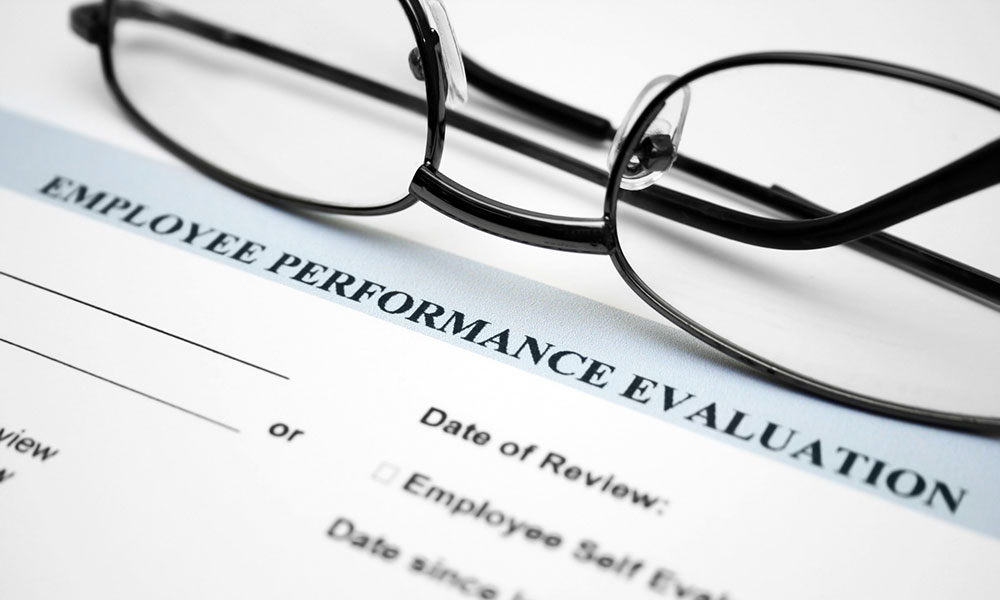
Why the Performance Review Is Worth Saving
We still haven't figured out the best way to assess workers. But there's more clarity around what we want out of those assessments.
As brain-shatteringly hard-to-resolve mental challenges go, the employee performance review seems to be right up there with the trolley problem and the nature of consciousness.
Employers understandably need some way to measure achievement and reward workers for doing their jobs well, especially when they have to budget for payroll ahead of time. But it’s hard to find a systematic assessment tool that doesn’t leave employees feeling alienated and diminished, and supervisors crushed under a pile of paperwork.
I can make midcourse corrections, which will actually make it work.
In my feature story in the latest Associations Now, I explored some of the ways that associations have responded to this challenge. The changes they’ve made are motivated in part by shifts in the corporate world, where companies have experimented with dispensing with the performance review entirely. But, just when everybody has started moving in that direction, now the pendulum seems to be swinging back the other way: A recent Harvard Business Review , cowritten by two Facebook executives along with a consultant, reports that Facebook is preserving its reviews in response to employee requests. (According to a survey, 87 percent of employees wanted to keep them.)
The article highlights what employees want out of that experience: They want to feel they’ve been treated fairly and transparently, they want to avoid being (de)prioritized into A-B-C groups, and they want to feel like they’re given opportunities to grow. As it happens, you don’t need to have performance reviews to handle those first two concerns: You, as a leader, can just make a point of connecting with employees more often and understand what they’re experiencing on the job. But that last request makes things a little trickier. “When companies eliminate reviews,” they write, “managers actually devote less time to performance management.”
So, there’s an upside to keeping performance reviews to the extent that it compels managers to pay attention to performance. But what elevates that responsibility to something that’s more than just a responsibility to be grudgingly attended to?
Earlier this month, Association Management Group’s Laura Ransone rightly pointed out that a “check-in” mentality, where managers and employees regularly discuss their work and goals informally, can help people on both sides of the desk diminish the dread that comes with the build-up toward an annual review. “Quick check-ins are important to make sure projects are on the right track and employees on pace,” she writes. “And while you may think you don’t have time to constantly check-in with employees, in the long run, this new process will be more productive and will take less time.”
One word of caution, however: A check-in approach may not, in fact, take less time. Ken Doyle, chief operating officer at the Smart Electric Power Alliance, told me that he spends more time with his approach—regularly asking staffers a set of questions about their work, and changing up the nature of the questions so that he’s covering different ground. But if the goal is overall efficiency—encouraging people to do their best work and helping them to concentrate on it—then it’s time well spent. “I can make midcourse corrections, which will actually make it work,” he says. “To me, it is much more productive. It’s also easier to do because the time chunks are smaller.”
I’ve tubthumped once or twice in the past here about how any useful performance-review process is going to have to factor in receiving more feedback from workers. Alas, I’m not in possession of a silver bullet that will kill the bad performance review dead and let your employees thrive with something better. I do think that check-ins and regular feedback matter a lot, but I also recognize how overbearing that can be, especially if it’s systematized. Ultimately, you’re a boss, not a helicopter parent. And your employees are grown-ups, not needy kindergarteners.
But I’ve come to believe that any supervisor who’s doing reviews right prioritizes a few things: They’re listening to their employees; but they’re doing it through the filter of what works best for what the organization needs; they keep it as simple and unobtrusive as possible. In my feature story, Robert F. Nelson, CAE, explained that when he was CEO at the National Coffee Association, he emphasized highlighting good work, and only felt compelled to break out the paperwork if there was a consistent problem. Less paperwork is something that everything wants, of course. And if you can get happier employees who feel more settled in their roles and willing to expand them? All the better.
What do you do to get relevant feedback from your employees outside of those onerous-if-necessary performance reviews? Share your experiences in the comments.
(iStock/Thinkstock)






Comments